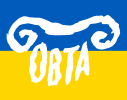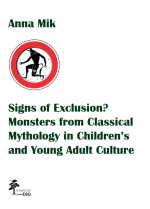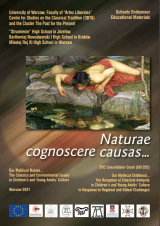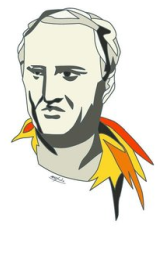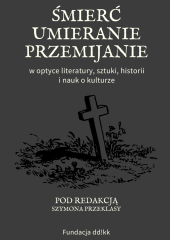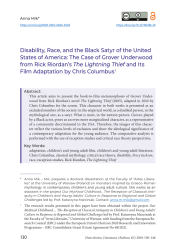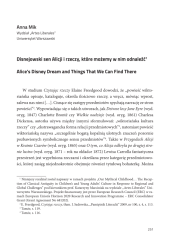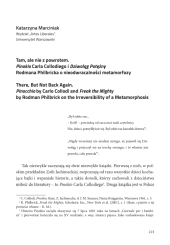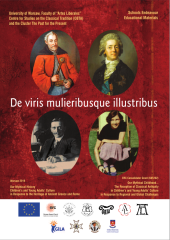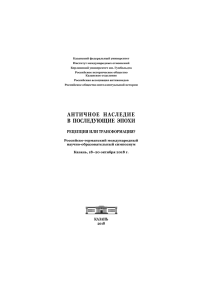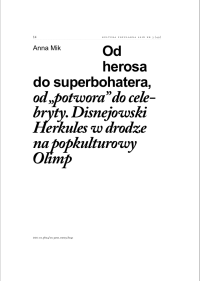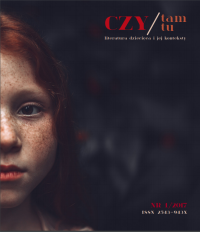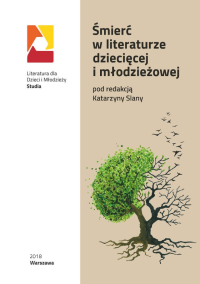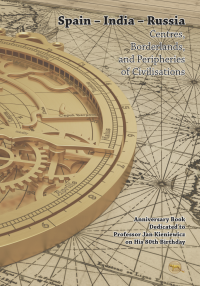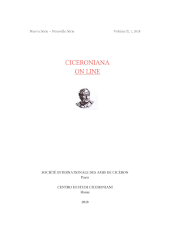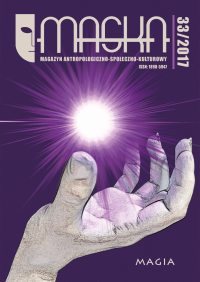Publications
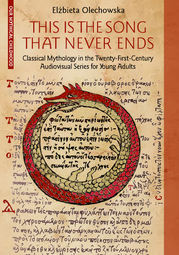
"This Is the Song that Never Ends", Warsaw: University of Warsaw Press, 2025, 482 pp.
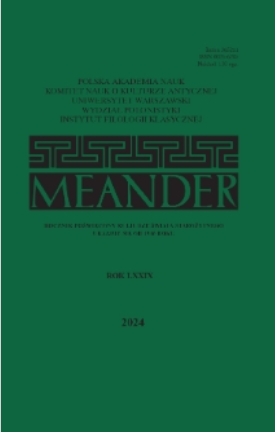
"Jak przechytrzyć łacinnika. Zukerkandla „Biblioteka Klasyków Rzymskich i Greckich” jako odpowiedź na metody nauczania języków klasycznych w gimnazjach w latach 1899"
Meander Vol. 79 (2024), 135–162 pp.
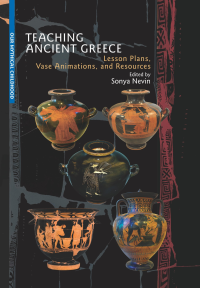
"Teaching Ancient Greece. Lesson Plans, Vase Animations, and Resources", Warsaw: University of Warsaw Press, 2024, 346 pp.
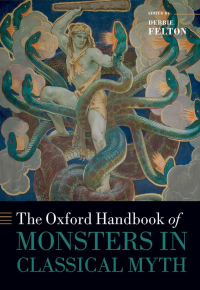
"Classical Monsters in Children's and Young Adult Literature"
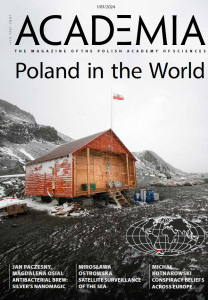
”The Modern Argonauts”
Academia. The Magazine of the Polish Academy of Sciences, 1/81/2024, 66–69
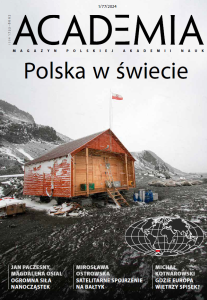
”Współcześni Argonauci”
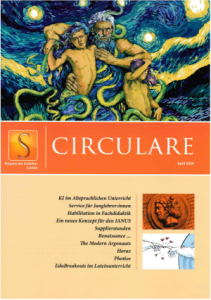
”Ein Bericht von der Reise der modernen Argonaut:innen oder: Ein internationales Bildungsprogramm auf der Grundlage der klassischen Mythologie, das Jugendliche zum Dialog über aktuelle Themen ermuntert”
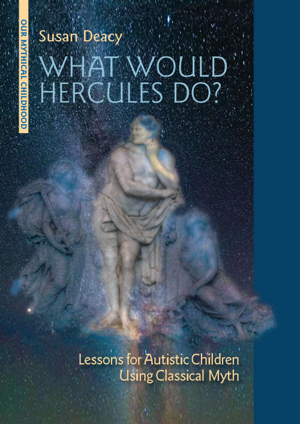
What Would Hercules Do? Lessons for Autistic Children Using Classical Myth in the series “Our Mythical Childhood”, Warsaw: University of Warsaw Press, 2023, 202 pp.
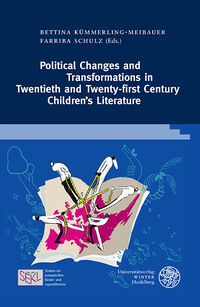
“Make Peace, Not (the Trojan) War: Transformation and Continuity in the Mirror of the Myth of Troy – with a Focus on Polish Children’s Literature”
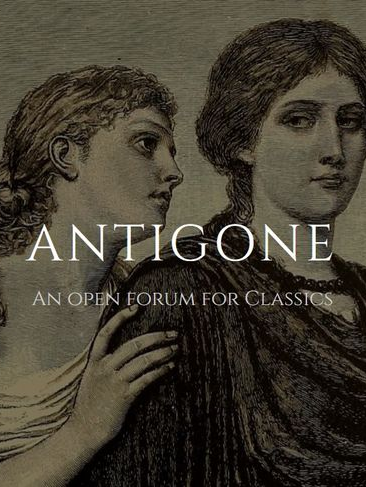
“Ancient History is Happening Now: Jacek Bocheński and His Roman Trilogy”
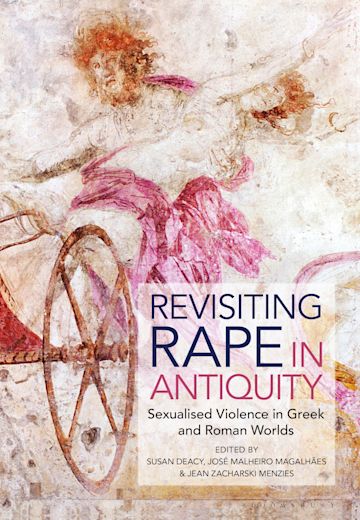
“Why Centaurs Do Not Rape Anymore? Looking for Sexuality in Contemporary Children’s and Young Adult Culture Inspired by Antiquity”
Susan Deacy, ed., Sexual Violence in the Greek and Roman World, London: Bloomsbury, 2023, 215–230.
Open Access soon
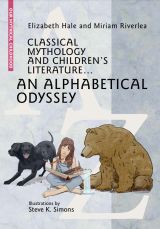
Classical Mythology and Children's Literature... An Alphabetical Odyssey, in the series “Our Mythical Childhood”, Warsaw: University of Warsaw Press, 2022, 468 pp.
See here for more about An Alphabetical Odyssey
Open Access
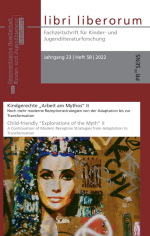
"Paideia of Diogenes: Live Like a Dog to Become a Human"
"libri liberorom: Fachzeitschrift für Kinder- und Jugendliteraturforschung" 58, 2022, pp. 25–35
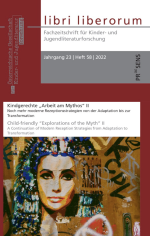
"Playing with Cleopatra. About the Image of the Egyptian Queen in Products for Children and Young Adults (Introduction to Research)"
"libri liberorom: Fachzeitschrift für Kinder- und Jugendliteraturforschung" 58, 2022, pp. 36–59
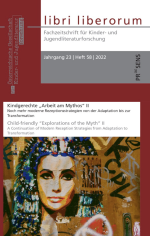
"Learning through Fun. Classical Antiquity in Tytus, Romek i A'Tomek, a Polish Comic Book Series"
"libri liberorom: Fachzeitschrift für Kinder- und Jugendliteraturforschung" 58, 2022, pp. 7–15
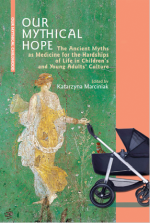
Our Mythical Hope: The Ancient Myths as Medicine for Hardships of Life in Children's and Young Adults’ Culture, in the series “Our Mythical Childhood”, Warsaw: University of Warsaw Press, 2021, 836 pp.
See here for more about Our Mythical Hope
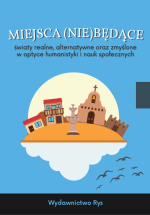
Z Owidiuszem do podziemi Nowego Jorku, czyli recepcja mitologicznego Hadesu w powieści Katherine Marsh Nocny włóczęga [With Ovid to the Underworld of New York, or the Reception of the Mythological Hades in the Novel by Katherine Marsh “The Night Tourist”]
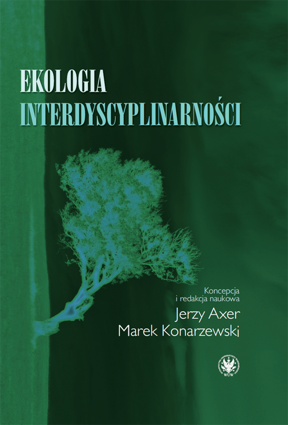
“Lekcje latania, czyli ekologia interdyscyplinarności w programie Our Mythical Childhood” [Flying Lessons, or the Ecology of Interdisciplinarity in the Programme Our Mythical Childhood]
Open Access soon
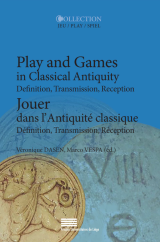
“Du Rubicon à la chambre d’enfants: la réception de l’expression Alea iacta est dans la culture contemporaine des jeunes”
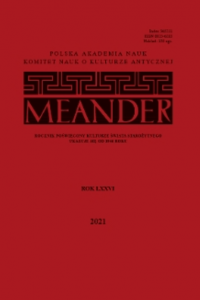
"Starożytna femme fatale na wielkim ekranie – ewolucja wizerunku Kleopatry do roku 1954" [The Ancient Femme Fatale on the Silver Screen – Evolution of Cleopatra’s Image until 1954]
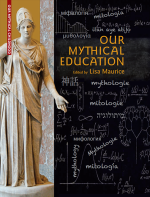
Our Mythical Education: The Reception of Classical Myth Worldwide in Formal Education, 1900–2020, in the series “Our Mythical Childhood”, Warsaw: Warsaw University Press, 2021, pp. 579
See here for more about Our Mythical Education
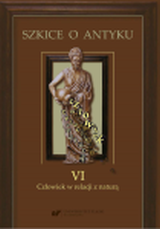
“Wizerunek bogini łowiectwa Artemidy we współczesnej literaturze dziecięcej i młodzieżowej inspirowanej antykiem” [The Image of Artemis, Goddess of the Hunt, in Contemporary Literature for Children and Adolescents Inspired by Antiquity]
For the whole volume see here
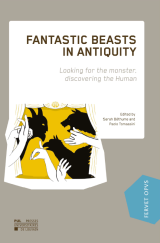
“Mythical Sanctuaries of the Wizarding World: The Ancient Classical Concepts of Animal Protection in J. K. Rowling’s Harry Potter Universe”
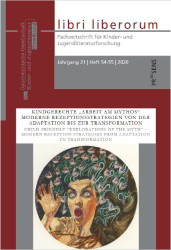
“Metamorphoses of Medusa: The Reception of the Gorgon in 21st-century Culture for Children and Young Adults”
"libri liberorom: Fachzeitschrift für Kinder- und Jugendliteraturforschung" 54-55, 2020, pp. 47-82
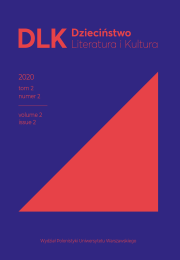
“Into the Wild Childhood: A Study of Wildness in Three 21st-Century Picturebooks”
Dzieciństwo. Literatura i Kultura [Chidhood. Literature and Culture], 2(2) 2020, pp. 54-72
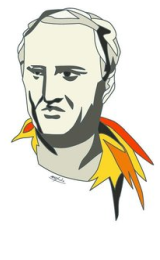
A voice in the panel discussion by Andrea Balbo, Katarzyna Marciniak, Jerzy Axer, David Movrin, Ermanno Malaspina, and Markus Janka, “The Formation of Civil Society: Cicero’s Role in artes liberales Education Today”
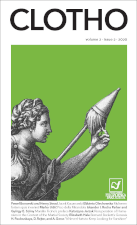
“It Never Hurts to Keep Looking for Sunshine: The Motif of Depression in Works for Children and Youth Inspired by Classical Antiquity”
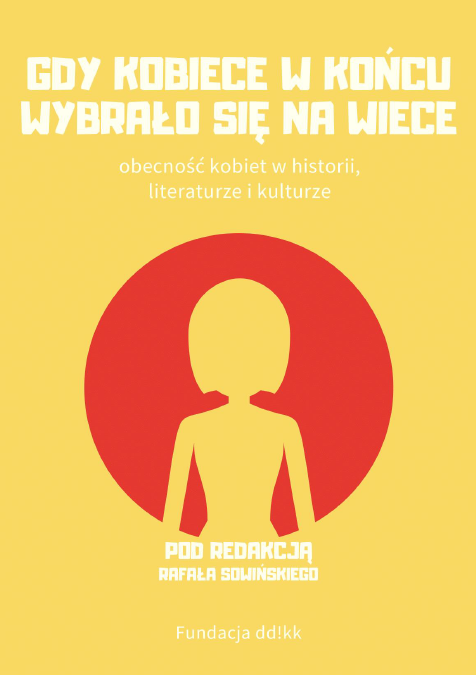
"Potworne, zwierzęce, kobiece - syreny. Kobieco-rybie hybrydy w kulturze dla najmłodszych na wybranych przykładach" [Monstrous, Animalistic, Female - Sirens. Women-fish Hybrids in Culture for the Youngsters on Selected Examples]

„Dorobek na zawsze” – antyczna odpowiedź na stare i nowe pytania [“A Possession For Ever” – An Ancient Answer to Old and New Questions]
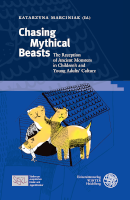
Chasing Mythical Beasts: The Reception of Ancient Monsters in Children’s and Young Adults’ Culture, in the series “Studien zur europäischen Kinder- und Jugendliteratur / Studies in European Children’s and Young Adult Literature” 8, Heidelberg: Universitätsverlag Winter, 2020, 623 pp.
See here for more about this book

“WhatsApp-based Learning in Ecole Normale Supérieure de Yaoundé-Cameroon at the Time of Coronavirus”
International Journal of TESOL Studies 2(3), 2020, pp. 13–31
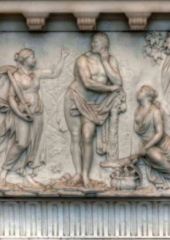
“Autism and Classical Myth: Choosing with the Froebel College Hercules”
Primary Schools Partnership June Newsletter, London: University of Roehampton, 2020, 14–16
For the whole Newsletter see here
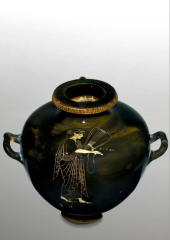
“Sappho 44: Creativity and Pedagogy with Ancient Poetry, Pottery, and Modern Animation”
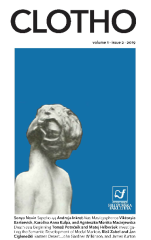
“Death as a Beginning: The Transformation of Hades, Persephone, and Cleopatra in Children’s and Youth Culture”
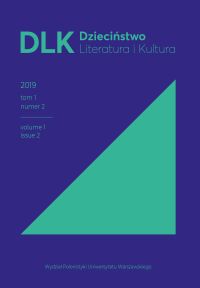
“Nie tylko Pinokio. Dwa głosy o włoskiej literaturze dziecięcej i młodzieżowej na polskim rynku wydawniczym” [Not only Pinocchio: A Double Voice on Italian Children’s and Young Adult Literature on the Polish Publishing Market]
Dzieciństwo. Literatura i Kultura [Childhood: Literature and Culture] 1(2) 2019, pp. 251–262

“To India and Lithuania through Soviet Picture Books” [a review article]
Dzieciństwo. Literatura i Kultura [Childhood: Literature and Culture] 1(2) 2019, pp. 242–250
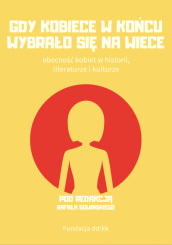
“Kleopatra niejedną ma twarz – recepcja postaci egipskiej władczyni w kulturze dziecięcej i młodzieżowej” [“Many Faces of Cleopatra – Reception of Egyptian Queen In the Children and Youth Culture”]
Mitologiczne zaświaty w XXI wieku. Katabaza w powieści Ricka Riordana „Percy Jackson i bogowie olimpijscy” [Mythological Underworld in the 21st Century. The Katabasis in Rick Riordan’s Novel “Percy Jackson & the Olympians”]
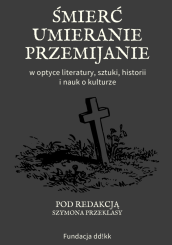
“Na Ozyrysa, pokażę Wam, jak umiera królowa... Recepcja mitu śmierci Kleopatry VII w filmach z XX i XXI wieku” [“By Osiris, I show you how a queen dies... The Reception of Cleopatra’s Death in the 20th- and 21st-century Movies”]
"Disability, Race, and the Black Satyr of the United State of America: The Case of Grover Underwood from Rick Riordan’s The Lighting Thief and Its Film Adaptation by Chris Columbus"
Dzieciństwo. Literatura i Kultura [Childhood: Literature and Culture] 1, 2019, pp. 130–146
"Disnejowski sen Alicji i rzeczy, które możemy w nim odnaleźć" [“Alice’s Disney Dream and Things That We Can Find There”]
"Tam, ale nie z powrotem. Pinokio Carla Collodiego i Dziwoląg Potężny Rodmana Philbricka o nieodwracalności metamorfozy" [“There, But Not Back Again. Pinocchio by Carlo Collodi and Freak the Mighty by Rodman Philbrick on the Irreversibility of a Metamorphosis”]
De viris mulieribusque illustribus: Schools Endeavour Educational Materials
Мифические мультики или Классическая древность в советской анимации для детей [Mythical Cartoons or Presence of the Classical Antiquity in Soviet Animation for Children]
Od herosa do "superbohatera", od "potwora" do celebryty. Disnejowski Herkules w drodze na popkulturowy Olimp [From Hero to "Superhero", from "Monster" to Celebrity. Disney's Hercules on his Way to the Pop Culture Olympus]
Kultura Popularna 3 (49), 2016, pp. 14–23 ; DOI: 10.5604/01.3001.0009.8041
(Nie tylko) kolonialne "zaklęcia" i jak je znaleźć. Magia w Ameryce Północnej według J. K. Rowling [(Not only) Colonial "Spells" and how to Find them. Magic in North America According to J. K. Rowling]
Czy/Tam/Czy/Tu. Literatura dziecięca i jej konteksty 1, 2017, pp. 52–77
„Śmierć będzie ostatnim wrogiem, który zostanie zniszczony”. Dziecko – horkruks w cyklu o Harrym Potterze J. K. Rowling [“The last enemy that shall be destroyed is death.” The Child-Horcrux in Harry Potter series by J. K. Rowling]
Śmierć w literaturze dziecięcej i młodzieżowej [ Death in Literature for Children and Young Adults ], ed. by Katarzyna Slany, Warszawa: Wydawnictwo SBP, 2018, pp. 215–228
Et in Arcadia Ferdinand: The Mythical Victory of an Extraordinary Bull
Spain–India–Russia: Centres, Borderlands, and Peripheries of Civilisations. Anniversary Book Dedicated to Professor Jan Kieniewicz on His 80th Birthday , ed. by Jan Stanisław Ciechanowski and Cristina González Caizán, Warsaw: Faculty of “Artes Liberales” of the University of Warsaw– Wydawnictwo Naukowe Sub Lupa, 2018, pp. 247–262
Cicerone – il più grande dei poeti
Ciceroniana On Line: A Journal of Roman Thought II, 1, 2018, pp. 105–161
Magizoology: The Magical Creatures Studies J.K. Rowling's Postulates on Animals in ‘Fantastic Beasts and Where to Find Them’ on Examples from Graeco-Roman Mythology
Forthcoming:
2025
Katarzyna Marciniak, ed., Our Mythical History: Children’s and Young Adults’ Culture in Response to the Heritage of Ancient Greece and Rome, in the series “Our Mythical Childhood”, Warsaw: University of Warsaw Press, 2025
- Katarzyna Marciniak, “What Is the Ancient History in Children’s and Young Adults’ Culture?”
- Part I: Ancient History – Our Histories
- Lisa Maurice, “Reading the Graeco-Roman World from Right to Left: The Portrayal of Greeks and Romans in Jewish Children’s Fiction”
- Valentina Garulli, “The Irresistible Charm of History: Laura Orvieto’s Narrative on Historical Themes”
- Bettina Kümmerling-Meibauer, “The most splendid guy of ancient history: Facts and Fiction on Spartacus in German Children’s Literature”
- Sonja Schreiner, “Reduced to Stereotypes vs. Historical Realism: Ancient People in Children’s Literature in the 1950s and in the Third Millennium”
- Part II: Young and Old between Rebellion and Admiration
- Katarzyna Jerzak, “Mark Twain’s Innocents Abroad (1869): An Irreverent Look of the New World Upon the Old”
- Hanna Paulouskaya, “The Lives of Remarkable Ancients for Use of Soviet Youth”
- Edoardo Pecchini, “Promoting Mental Health through Classics: Icarus’ Flight”
- Sheila Murnaghan, “Champion of History, Inveterate Liar: Biographies of Heinrich Schliemann for Young Readers”
- Part III: Once Upon a Time and Today in Greece and Beyond
- Deborah H. Roberts, “The Gadfly and Athenian Girlhood: Socrates in Historical Fiction for Children”
- Robert A. Sucharski, “Witold Makowiecki and His Two Novels on the Mediterranean in the Sixth Century BC”
- Przemysław Kaniecki and Przemysław Kordos, “Ancient History in Contemporary Modern Greek Comics”
- Krishni Burns, “Spectacular Colonialism: Naumachia in Children of Blood and Bone”
- Daniel A. Nkemleke, Divine Che Neba, and Eleanor A. Dasi, “Mythic Fulfillment and Performance in the Bafut Abinimfor and the Greek Dionysian Festivals”
- Part IV: The Romans Rule!
- Ayelet Peer, “He Came, He Saw, He Conquered Hollywood: Julius Caesar in Popular Culture”
- Markus Janka, “Rejuvenating Heroes of Roman History in Robert Harris’ Novels and HBO’s Rome”
- Raimund Fichtel, “The Birth of the Suetonian Nero from the Spirit of Mythology and Its Modern Variations”
- Part V: Playing with Ancient History
- Rachel Bryant-Davies, “A nobler entertainment: Graeco-Roman History in British Children's Toys and Games, ca. 1750–1914”
- Karolina Kulpa, “Caesar and Cleopatra unite Rome and Egypt: (Re)creating and Playing with Ancient History on the Playmobil Series”
- Véronique Dasen and Ulrich Schädler, “Gods, Heroes, and Monuments: Greek and Roman Antiquity in Games”
- Elizabeth Hale, “Funny Bones: Archaeology, Humour, and Australian Children’s Books”
- Owen Hodkinson, “Groovy Greeks, Rotten and Ruthless Romans: The Classical Past in the Horrible Histories Series”
- Elżbieta Olechowska, “Ancient History in DC’s Legends of Tomorrow, Season 3, Episodes 1, 6, 18 (‘Aruba-Con’, ‘Helen Hunt’, ‘The Good, the Bad, and the Cuddly’)”
- Krzysztof Rybak, “Our Honeyed History: The Ancient World in Pszczoły [The Book of Bees] and Drzewa [The Book of Trees] by Piotr Socha and Wojciech Grajkowski”
- Part VI: Between Myth and History
- Edith Hall, “Secular Ethics for Junior Socialists: F.J. Gould on Ancient History, 1906–1913”
- Nick Lowe, “Children of History: Situating Youth Consciousness in Fictional Greek Antiquity”
- Jerzy Axer, “‘By Oak, Ash, and Thorn!’: The Meaning of the Lessons in Roman History with Puck of Pook’s Hill”
- Jan Kieniewicz, “The Knight without Fear and beyond Reproach: The Hero Myth in Partitioned Poland”
- Karoline Thaidigsmann, “Post-Socialist Identity between Slavic Gods, the Graeco-Roman Tradition and Western Christianity. A Reading of Dorota Terakowska’s Crossover Novel Samotność bogów [The Loneliness of the Gods]”
- Katarzyna Marciniak, “The Once and Future Antiquity: Greek and Roman Heritage in the BBC’s Merlin”
Katarzyna Marciniak, ed., Our Mythical Nature: The Classics and Environmental Issues in Children’s and Young Adults’ Culture, in the series “Our Mythical Childhood”, Warsaw: University of Warsaw Press, 2025 (Table of Contents TBA)
Hanna Paulouskaya, “Soviet Argonauts: Sailing to the Coasts of Colchis in the Soviet Films”, tba, 2025




